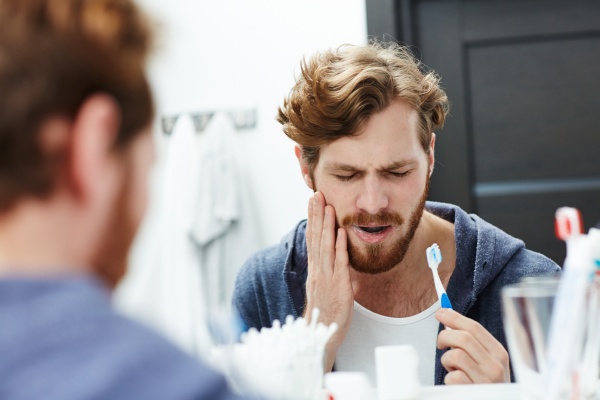RISK FACTORS OF ORAL CANCER, WHAT YOU NEED TO KNOW

Oral Cancer, as in many other types of malignant conditions, is associated with risk factors that are both in, and out of, our control. It would be in our best interest to understand what these are so as to minimize, or eliminate, those factors we do have a say about. Please join me in learning what risk factors we should manage. Understanding those we do not have control over also prepares us to gain more insight on how these malignancies arise.
In my practice, we recently recognized a large mean-looking lesion on the dorsum ( upper side ) of a male patient's tongue. This was noted during a routine hygiene and recall visit. In discussion with the patient, he stated he had been aware of the lesion and that he thought it may have come about from a burn while drinking hot coffee. Clearly, he was not concerned. The lesion had already been there for about two weeks. Surely, we alerted him to its abnormal appearance and suggested certain palliative measures for one more week, asking the patient to return to our office for another evaluation at the end of seven days. Once there a week later we noticed the lesion remained unchanged. Immediately, we referred the patient to an oral and maxillofacial surgeon for another opinion and biopsy of the lesion. The results came back with a diagnosis of squamous cell carcinoma of the tongue. Our patient is now in significant pain and is scheduled for surgical removal of a portion of his tongue in just a few days. Most importantly, we have detected the nature and severity of the lesion prior to it becoming a systemic concern. Unfortunately for the patient, he will partially lose his ability to properly eat and speak...at least for some time while he learns to manage the missing portion of his tongue. Don't let this happen to you!
We will first outline those RISK FACTORS we can control:
* Tobacco Use: Not using tobacco is the single most important thing you can do to avoid oral cancers. In all forms, tobacco is the largest contributor to the development of oral or mouth cancers.
*Excessive Alcohol Consumption: Moderate consumption of alcohol is highly recommended. More than 15 alcoholic drinks per week puts you at greater risk.
*Combined Consumption of Alcohol and Tobacco: Using these two together highly increases your risk of oral cancer.
*Excessive and Unprotected Exposure to the Sun: Lip cancer is significant. Use at least SPF 30 on your lips while in the sun and limit your exposure to minimal time.
*Minimal Intake of Fruits and Vegetables: These foods deliver many protective nutrients that serve to decrease the risk of acquiring many different types of cancers, including oral malignancies.
*Consumption of Betel Nut and Bedis: Chewing or smoking these will increase your risk of oral cancer. Avoid their consumption all together.
Now, lets discuss those RISK FACTORS that are out of our control, or in which control is limited:
*Age: Older individuals suffer from less efficient immune systems and so tend to develop more disease in general, including oral cancer.
*Race, Ethnicity, and Economics: Certain socio-economic factors influence the development of cancers in different groups of people. For instance, blacks are diagnosed with cancer more frequently than other races. Persons with poor access to health care, either from geographic or economic reasons, are at an increased risk of developing oral cancer.
*Gender: Unrelated to biology, males tend to develop oral cancer more than females. This is based on statistical data...as determined by lifestyle habits.
*Recurrence: Persons having been diagnosed with head and neck cancer in the past have a greater risk of acquiring the cancer again. This may occur in the mouth or other areas of the digestive tract.
*HPV Infection: The HPV virus is associated with oral cancer. This is the same virus that causes more than 95% of cervical cancers in women. It is thought to be a co-factor and facilitator in tobacco induced cancers. Avoiding numerous sexual partners and engaging in protected sex will decrease your risk of acquiring the HPV viral infection.
What I can advise is that you first be aware. Knowing your lifestyle and those controllable risk factors can assist you in managing your behavior so as to minimize those habits that do not serve you well. Understanding the signs and symptoms of disease alerts you to seek early professional advice. In turn, this may just save your life! Early detection is key to reducing your risk.
Consider making your oral cancer screening a normal part of your annual examinations. Just as you do for breast, cervical, skin, prostate, and colon examinations, engaging in an annual oral cancer screening is painlessly quick, easy, and inexpensive. In our office, I, together with our smile team, evaluate your oral tissues every time you come in for your annual, biannual, or quarterly examinations. Additionally, while under treatment, we regularly examine your oral cavity for changes or abnormalities.
So, please...Be Aware, Avoid Risk Factors, and Get An Annual Screening!
Remember, we are here to assist you in attaining the "smile you'd be proud to wear...ANYWHERE!!"


